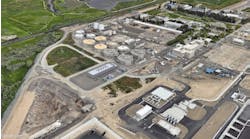The DC Sustainable Energy Utility (DCSEU) has achieved $100 million in lifetime energy savings through an $18 million investment in energy efficiency and renewables, according to the Washington, DC organization’s 2014 Annual Report.
The DCSEU, featured here last year in EnergyEffificiencyMarkets.com, helped DC conserve more than 60,000 MWh, equivalent to the power used by more than 7,000 homes within a year. Customers were also able to save over 134,000 Mcf of natural gas and prevent more than 110 million pounds of greenhouse gas emissions from entering the atmosphere.
“This DCSEU annual report shows clearly that we are on track to strengthen our commitment toward energy efficiency in the district,” said Keith Anderson, director of the District Department of the Environment (DDOE), the agency that oversees the DCSEU. “We have a lot more work to do but we already have the right mix of programs and goals in place to lead by example, help to grow our economy, and ensure measurable environmental benefits.”
Earlier this year, the American Council for an Energy-Efficient Economy (ACEEE) credited the DCSEU for helping Washington, DC become one of this year’s most improved jurisdictions in ACEEE’s scorecard. DC moved up nine places in the country’s overall rankings for energy efficiency. According to the ACEE’s 2014 State Energy Efficiency Scorecard, the DCSEU’s ability to ramp up programs helped the district achieve both electric and natural gas savings.
Formed in 2011, the organization has a mandate to save, not sell, energy. DCSEU focuses on efficiency in homes and buildings within the city borders. It also works on improving economic conditions within the city. The organization has created 82 full-time equivalent jobs and invested more than $6 million in energy efficiency and renewable energy projects in affordable housing.
“Energy efficiency empowers the district by stabilizing energy costs, creating jobs, stimulating economic growth, and reducing carbon emissions,” said Ted Trabue, managing director of the DCSEU. “As we embark on FY 2015, we look forward to measuring our success in terms of the energy savings of our customers and the economic opportunities for residents and businesses.”
Keep up on news and features about organization’s like the DCSEU by subscribing to Energy Efficiency Markets’ free newsletter. Or follow us on Twitter @EfficiencyMkts.






